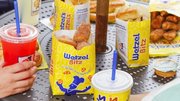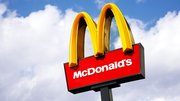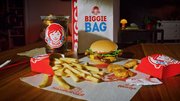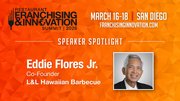News
Pizza Hut, Taco Bell, KFC report sustainability progress
The report highlights waste reduction, a commitment to offering healthier food and how Yum! Brands, since 2007, has donated more than $640 million in cash and food donations.
April 19, 2016
Yum! Brands has released its online 2015 Corporate Social Responsibility Report, highlighting progress made last year across its areas of focus: food, people, community and environment.
"Being a responsible company is at the heart of how we are growing our business,” said Greg Creed, CEO, Yum! Brands. "Our three iconic brands continue to demonstrate that we're a company dedicated to feeding the world, not only for profit, but also for good. Collectively, we're focused on making courageous decisions every day that deliver on the CSR commitments our consumers and stakeholders truly care about when it comes to our food, people, communities and environment."
The report highlights the company's progress against its 2015 goals, elevated governance strategy to annually update the Yum! board of directors on its CSR commitments and progress, as well as a strengthened Supplier Code of Conduct and Human Rights & Labor Practices Policy. Also featured are success stories from the company's brands worldwide presented in interactive, infographic-style and video formats, according to the release.
Additional Yum! Brands 2015 CSR Report highlights include:
Food
- Nearly all of the company's global markets met its 2015 goal of having 15 percent of meal options meet one-third of the Recommended Daily Allowance (RDA) in every country where it operates and are now striving toward the goal of 20 percent of meal options by 2020.
- Pizza Hut successfully removed over half a million pounds of salt from its menu in 2012, and removed another 1.5 million pounds of salt from core ingredients in 2015.
- Taco Bell committed to simplified ingredients, announcing the removal of artificial colors and flavors from its food and replacing them with natural alternatives, as well as removing artificial trans fat, high fructose corn syrup and unsustainable palm oil from their food by the end of 2015. It became the first QSR to offer American Vegetarian Association certified vegetarian menu items, and has committed to serving 100 percent cage-free eggs for its breakfast menu across U.S. restaurants by the end of 2016.
- Each of the company's brands are committed to minimizing the use of antibiotics important to human medicine in poultry. View the Yum! Antibiotic Statement here for specific brand commitments.
People
- In 2015, the company established a diversity and inclusion council called Leading Inclusion For Tomorrow to continue elevating the importance of diversity and inclusion in the business.
- Yum! presented the inaugural Supplier Diversity Award at its annual supply chain awards, established to recognize suppliers that demonstrate significant leadership in the area of diversity and inclusion.
- Yum! Brands was named a Learning Elite organization on the 2015 Learning! 100 list for the fourth consecutive year.
- Yum! continued focusing on restaurant employee development — like at KFC U.S. where rallies were held for restaurant general managers with nearly 95 percent participation.
Community
- Since 2007, the company and its brands donated more than $640 million in cash and food donations, equivalent to nearly 2.6 billion nutritious meals for those in need.
- In the U.S., the KFC Foundation launched the KFC Family Fund to provide temporary, financial relief to restaurant employees in crisis situations.
- Since 1992, the Taco Bell Foundation has awarded and committed $75 million in grants and scholarships, reaching five million young people in local communities across the U.S.
- For more than 20 years, the company has been committed to solving hunger in the U.S. through its Harvest food donation program. Since 1992, Harvest has contributed over 180 million pounds of food to more than 3,000 nonprofit organizations — a fair market value of $860 million.
- Yum! pledged to donate 10 million pounds of surplus product in 2016 as part of the U.S. Environmental Protection Agency’s Food Recovery Challenge.
Environment
- At the conclusion of 2015, global markets representing 85 percent of the company's new company-owned restaurant construction had integrated blueline approaches and technologies into their development processes and specifications to deliver LEED certifiable buildings.
- Yum! exceeded its 2015 energy reduction goal of 15 percent compared to its 2005 baseline, which is equal to the release of 1.6 million tons of CO2 or the annual output from 300,000 homes.
- Yum! global markets are testing alternative oils and developing transition plans to remove palm oil or source only sustainable palm oil by the end of 2017.
- The company set a new waste reduction goal to annually divert at least 50 percent of its back-of-house operational waste, calculated by weight, by the end of 2020.
 ChatGPT
ChatGPT Grok
Grok Perplexity
Perplexity Claude
Claude








